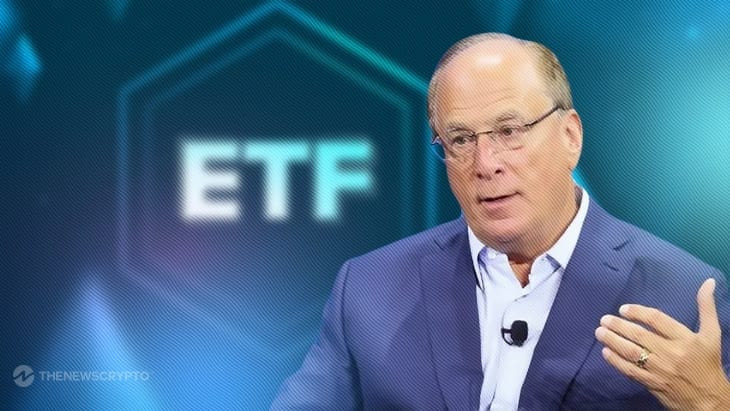By Maria Lobanova
With the recent approval of a Bitcoin Exchange-Traded Fund (ETF) by the US Securities and Exchange Commission (SEC), the coming year promises significant progress for the crypto space. In the wake of this regulatory milestone, the digital asset landscape will continue to expand. Tokenization, the process of digitizing real-world assets on a blockchain, not only establishes ownership but also improves liquidity and market accessibility.
Tokenization refers to the process of taking a real-world asset (RWA) and creating a digital replica on a distributed ledger (blockchain). This replica would indicate ownership of RWAs and also increase liquidity and market access. Traditionally, a paper transfer would require you to go to a third party, at a much higher cost.
The use cases of tokenization are numerous and it is one of the most exciting innovations in the entire Web3 space. We have gone far beyond the various payment methods associated with the original cryptocurrencies, to a democratization of massive multi-billion dollar industries to make them accessible and affordable to laypeople.
Fine wines and visual arts
Sygnum was the first company in Switzerland to issue tokenized securities under a new law passed in 2019 regarding the tokenization of luxury goods (such as wine and diamonds). Sygnum, in partnership with Fine Wine Capital AG, offers investors the opportunity to participate in expensive luxury wine through tokenization.
Interestingly, ownership rights can only be transferred to others via the blockchain, under the new Swiss law. No physical records need to be kept, unlike in other locations and sectors, especially the real estate sector.
Investax.io, meanwhile, is working on art tokenization together with other industries. Visual arts are notoriously difficult to access and can be quite expensive, but tokenization can open up the market significantly. This can also help artists and other creatives, such as singers and writers.
Creatives often have to work with external agents/marketers and may not get the best deal. Tokenization allows an asset to be quickly split and made available to the community without the need to involve third-party intermediaries. If they are needed, this is usually done at very low cost.
From real estate to luxury goods
Aside from art and fine wine, real estate is one of the most prominent use cases for RWA tokenization, given its market size and the fact that it is a necessity rather than a luxury.
For example, Propy already offers a full-fledged ownership transfer ecosystem. Users can mint their own NFTs for their homes, buy/sell through a registered agent, and take advantage of the world’s first title and escrow system. The company facilitated the sale of Michael Arrington’s (TechCrunch founder) apartment in Ukraine, via NFT transfer, along with the sale of many high-end homes in the US.
Real estate tokenization can convert millions of properties worth real estate into more affordable pieces for ordinary investors, reducing costs, increasing transaction efficiency and making the asset more liquid and affordable. But tokenization has many more applications, including within the luxury goods sector.
One of the main problems with luxury goods is that counterfeiting costs luxury brand manufacturers billions every year. With blockchain, an immutable NFT will absolutely verify ownership, virtually eliminating the problem of counterfeiting.
When a luxury item is made, it comes with an accompanying digital NFT to verify its authenticity. Counterfeiters will not be able to recreate this NFT. This is one reason why many blockchain-based luxury goods groups, such as Sygnum and Investax.io, have become prominent.
Tokenization of motor vehicles
Luxury vehicles are another area where tokenization is possible. A research report by broker Knight Frank shows that the return on investments in vintage cars between 2007 and 2017 was 330%. It is much more difficult to achieve these profits with other luxury goods such as gold and diamonds.
In 2020, the Ferrari F12 TDF was tokenized by CurioInvest. The vehicle was made in 2015 and is worth more than $1 million. Tokens were available for $1 each. The startup has further plans to tokenize more than 500 luxury cars, in partnership with digital asset exchange MERJ.
Given the rise in car prices and the impending rise of electric cars, tokenization could be very useful. A family can potentially invest in a car together, through tokenization, with group use. If a family member moves to another location, the tokens can be easily transferred.
The future of tokenized luxury goods
Tokenization has many applications for luxury goods, such as wine, art and collectibles, as well as high-end homes. It ensures better market access, liquidity and secure transfer and ownership of assets.
There is currently a lot of value absorbed when using traditional asset transfer models, with fees that can easily consume 10% of assets or more. And many markets are simply inaccessible due to a lack of RWA tokenization.
Tokenization is the future of luxury goods and has few if any downsides. But it solves a host of problems, including counterfeiting, liquidity, accessibility and proof of ownership.

